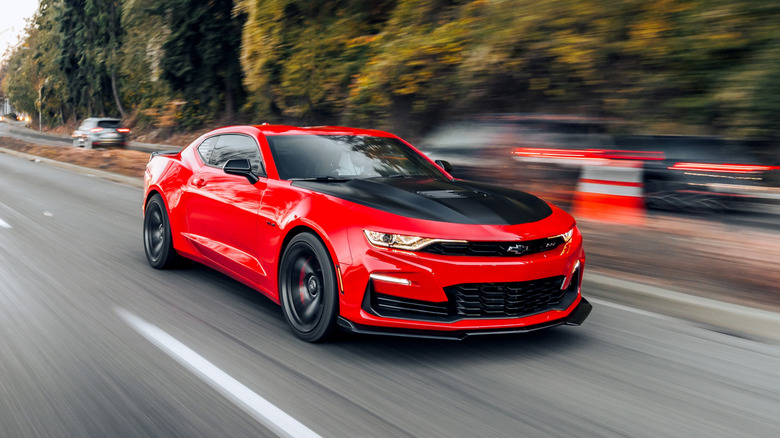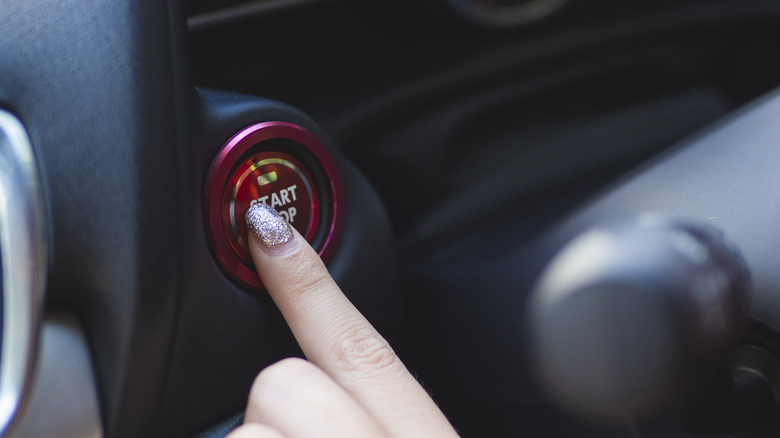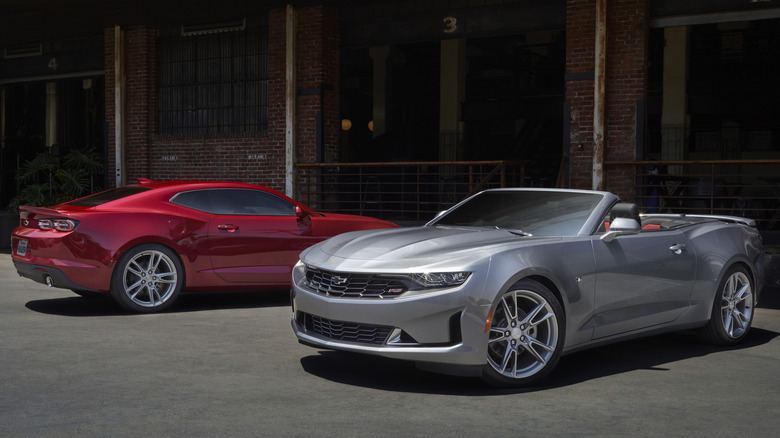This Is The Most Stolen Car In America, According To The IIHS
Vehicle theft in the U.S. has been climbing fast in recent years. Certain models are targeted more than others, but the patterns aren't random. Thieves target vehicles that are fast, valuable, and easy to take, and this year's biggest target checks both those boxes. Latest data from the Highway Loss Data Institute (HLDI) shows that the Chevrolet Camaro ZL1 is America's most stolen car of 2025. The 650-horsepower muscle car is reportedly stolen at a rate 39 times higher than the average vehicle from model years 2022-2024. Even the regular Camaro isn't far behind, at 13 times higher, making it the only car to claim two of the top five spots in IIHS's top 20 most-stolen cars list.
The report also shows the surge has been especially steep in the last two years, with the introduction of a technology first seen on the sixth-generation Camaros being singled out as a key factor in making newer models more vulnerable. States like California, Texas, Tennessee, Mississippi, and Maryland have seen the worst of it. In response, General Motors began offering a free theft-deterrent software update for the 2020-2024 Camaros, but whether it works as well as Hyundai and Kia's recent anti-theft software fix remains to be seen.
The 2016 redesign that made Camaros easier to steal
IIHS's deeper look at theft claims shows that older 2010-2015 Camaros weren't as vulnerable. Those models averaged just 1.3 theft claims per 1,000 insured vehicles per year, but by March 2024, newer models spiked to 18.3 claims per 1,000 vehicles. The shift started with the 2016 model year — the launch of the sixth-generation Chevrolet Camaro, which introduced keyless push-button start, as per IIHS's report.
Unlike physical keys, keyless push-button start systems use a signal from the car's key fob to unlock the doors and a start/stop button (keyless ignition) to fire up the engine. It's a feature most drivers today take for granted — but in the Camaro's case, it created a new security gap. IIHS's findings show that instead of breaking into the car the old-fashioned way, thieves have learned to bypass that keyless ignition system and steal the vehicle's digital key code. With that code, they can allegedly program a blank fob and drive away with your car without setting off any alarms.
While this method isn't unique to the Camaro, HLDI's data shows that this vulnerability has made the V8-powered sixth-generation Chevrolet Camaro – especially the ZL1 two-door — the most stolen car in America as of August 2025. Theft claims for these older Camaros soared starting in 2023 and have yet to slow down, placing them alongside other high-powered muscle cars, pickups, and luxury SUVs on the IIHS/HLDI's top 20 theft list.
GM's new software update could save your Camaro
To stop Camaros from vanishing off the streets, GM launched a new service campaign, the "Customer Satisfaction Program," in March 2025 for 2020-2024 models. The fix is a 30-minute free software update — that owners can get at a GM dealer — designed to stop thieves from using the Camaro's on-board diagnostic II (OBD II) ports to steal and copy the key codes. HLDI has flagged the program and says it will track its impact as fresh data comes in. But as of yet, it's too early to know whether this software patch will drop Camaro theft rates; however, there's reason to be optimistic.
Kia and Hyundai dealt with a similar TikTok-driven theft spree in 2023, which led them to roll out a software upgrade of their own. HLDI reports that for the eligible Hyundai and Kia vehicles that received the update, the whole-vehicle theft claims dropped by 53%, and overall theft claims were 46% lower compared to those that didn't get the software upgrade. This shows that less than half of those vehicles had the security software updated within the first year, leaving the rest just as vulnerable — and theft rates stayed just as high.
If Camaro owners skip the update, they may face the same outcome. The update won't retroactively protect 2016-2019 models, as GM's fix is eligible for only 2020-2024 models — and it's free of charge only until March 31, 2028. For those lucky enough to qualify, it's currently the best shot at stopping the problem before it gets even worse.


